Signs and symptoms of liver cirrhosis may not show in its early stages. At times, they might even be mistaken for symptoms of other illnesses.
Be on the lookout for the symptoms listed below, as they may be signs that your liver is already struggling.
RELATED: 9 Things Your Feet Can Tell You About Your Liver Problems
Warning Signs of Liver Damage | 12 Signs That You Have Liver Cirrhosis
Click here to jump to the infographic.
1. Red Palms
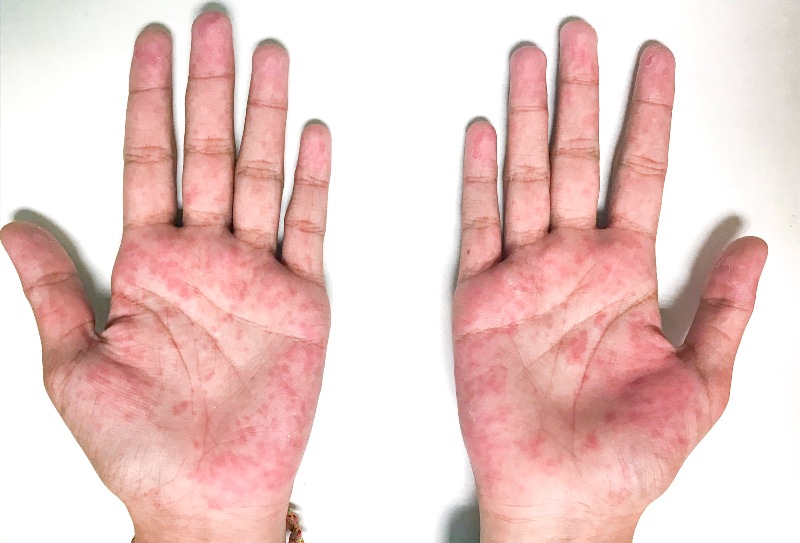
One red flag you shouldn't ignore for liver damage is red palms, also known as palmar erythema.
If you notice that your palms are getting red for no reason, it's more likely that you have non-alcoholic fatty liver disease. This is because your liver isn't processing your estrogen correctly, which causes the enlargement of the capillaries in your hands.
2. Clubbed Fingernails
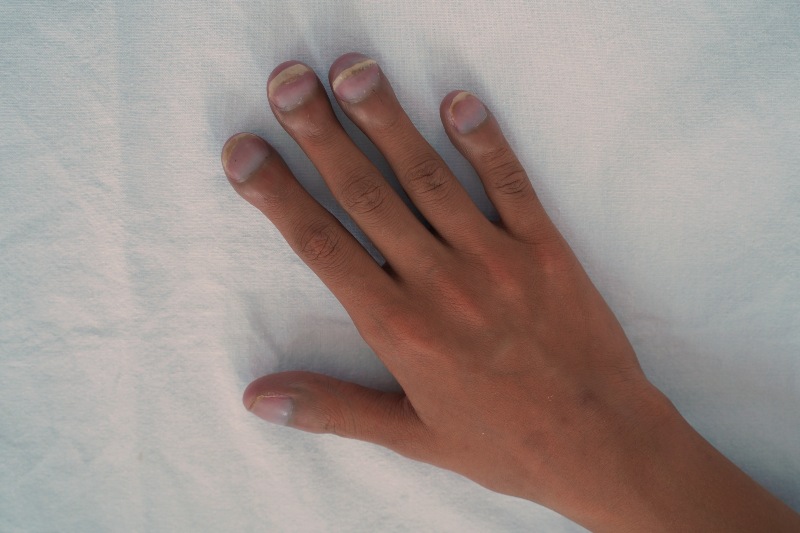
If your liver isn't functioning correctly, your body can't absorb nutrients correctly. This results in clubbing and thickening of your nails.
However, you have to be careful with this symptom, as it suggests that you have thyroid, heart, or lung problems.
3. Purple Bumps on Skin
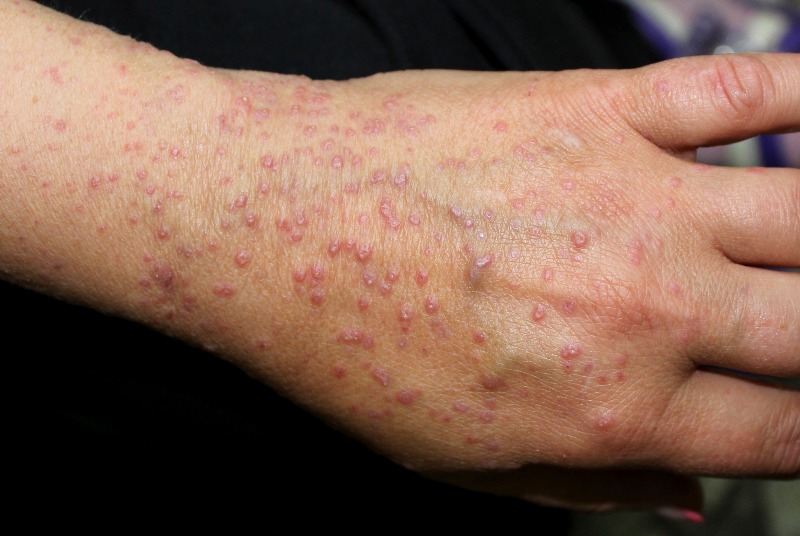
Purple bumps might appear on your skin, a condition known as lichen planus. This inflammatory skin condition may also signal that you have hepatitis C, a virus that damages your liver. Additionally, this infection leads to elevated liver enzymes in your bloodstream.
4. Chicken Skin
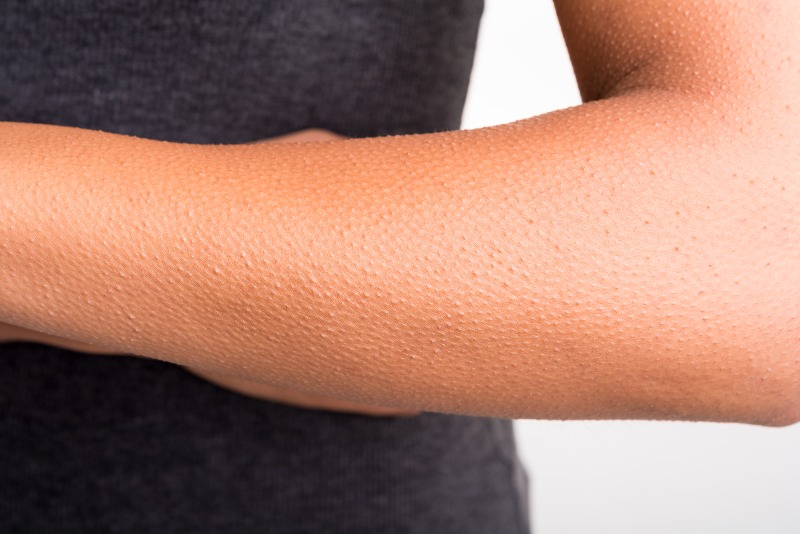
Your liver keeps vitamin A and makes a digestive fluid called bile. Damage to your liver can block these processes, prompting the development of small bumps on your hair follicles, particularly on your thighs or arms.
The good news is that this skin condition is harmless. However, aside from being a symptom of liver cirrhosis, it's also a sign that you don't have sufficient vitamin A in your body.
5. Pot Belly (Ascites)
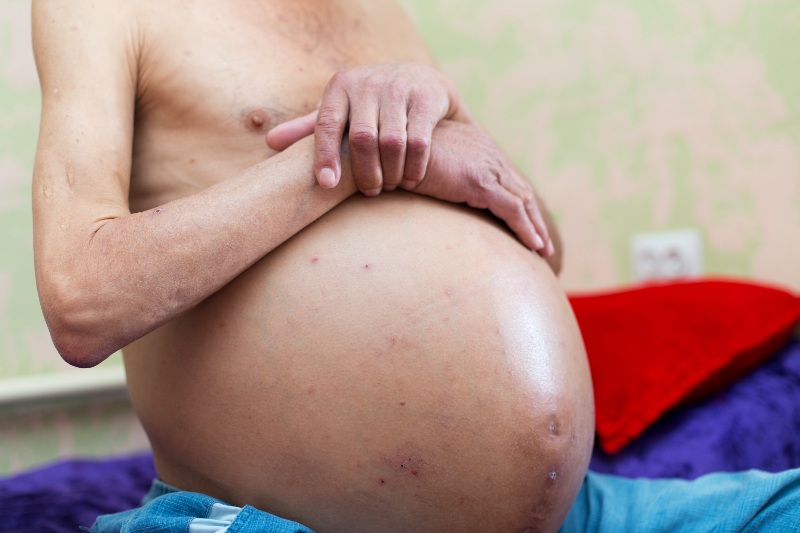
If your belly is pot-shaped and protrudes outwards, it might indicate that there's a buildup of fats in your liver. This fat accumulation can develop into scar tissue and liver cirrhosis.
What happens here is that fluid starts to discharge from your liver then goes to the smooth sac between your organs. This causes your stomach to stick out.
6. White Growth on Eyelid
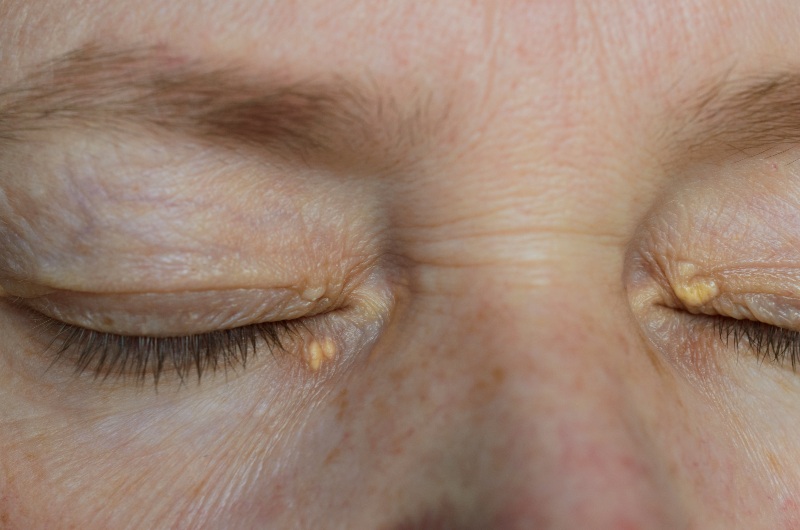
Your liver breaks down fats. When this function is weakened, there might be elevated lipid levels or fats in your blood. This causes the formation of white nodules or patches on your eyelids, known as xanthelasma.
These bumps are another common sign of liver cirrhosis. They form under your skin and may also appear on any part of your body, including your elbows, joints, feet, knees, and hands.
7. Dandruff
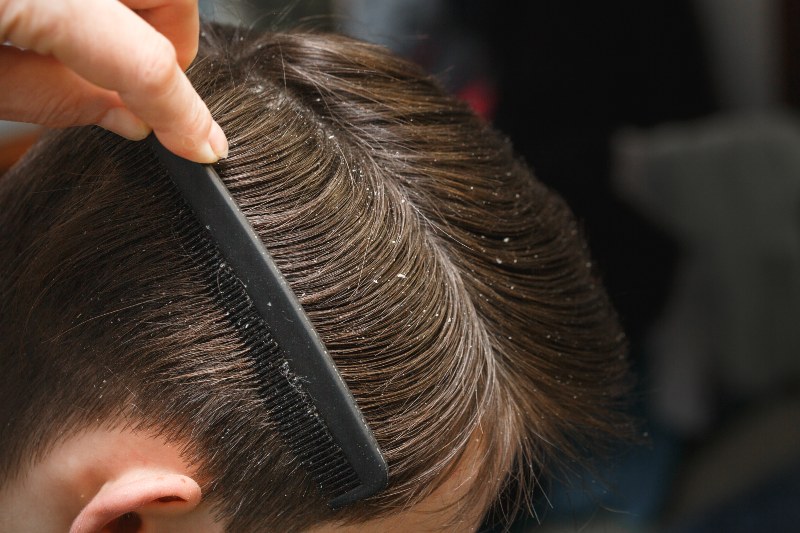
You may think that dandruff is just a simple skin problem. However, if those white flakes keep clinging to your hair or falling off your scalp, it might hint that you're deficient in vitamin B12 and that your liver is failing.
Your liver stores vitamin B12. If your liver isn't functioning correctly, it won't process this vitamin, causing your scalp to flake.
8. Spider Angioma
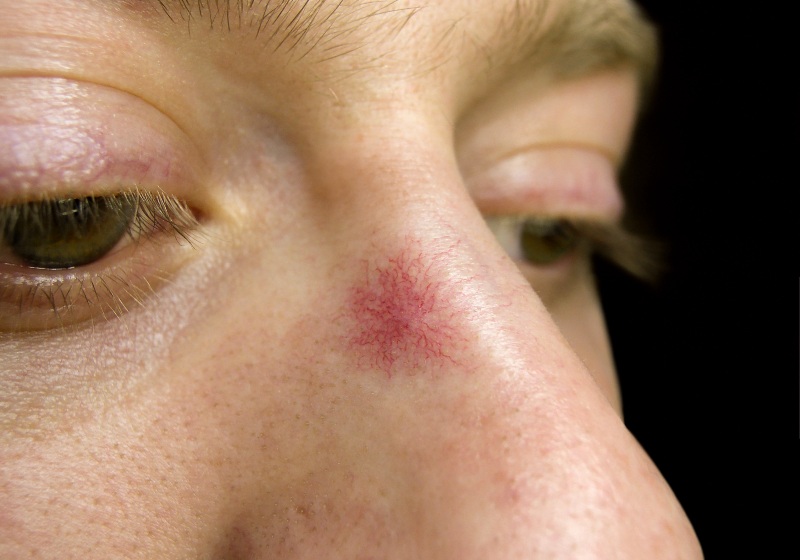
Cirrhosis affects your liver's job to remove excess estrogen from your body. Because of this, your veins become swollen in different areas of your body, similar to what happens to read palms. This leads to the appearance of small, red, spider-like blood vessels on your skin.
RELATED: 5 Common Health Problems For Men Over 50
9. Enlarged Breasts (In Men)
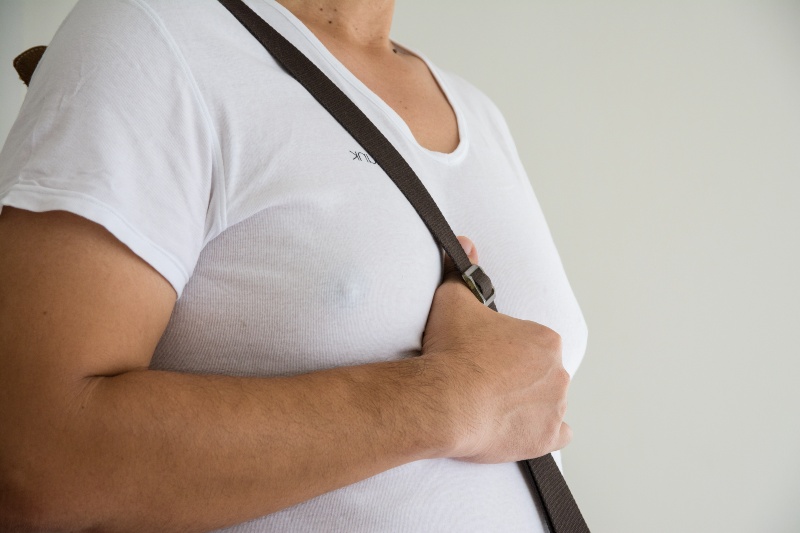
Since your liver regulates your hormones, damage to it causes an imbalance of estrogen and testosterone. This paves the way to one of the most obvious signs of liver cirrhosis — gynecomastia, or “man boobs.” In this condition, the amount of breast tissue in men increases.
However, it's important to note that apart from being a warning sign of liver cirrhosis, it also affects men's mental health, as it causes embarrassment and anxiety.
10. Swelling in Right Leg or Foot
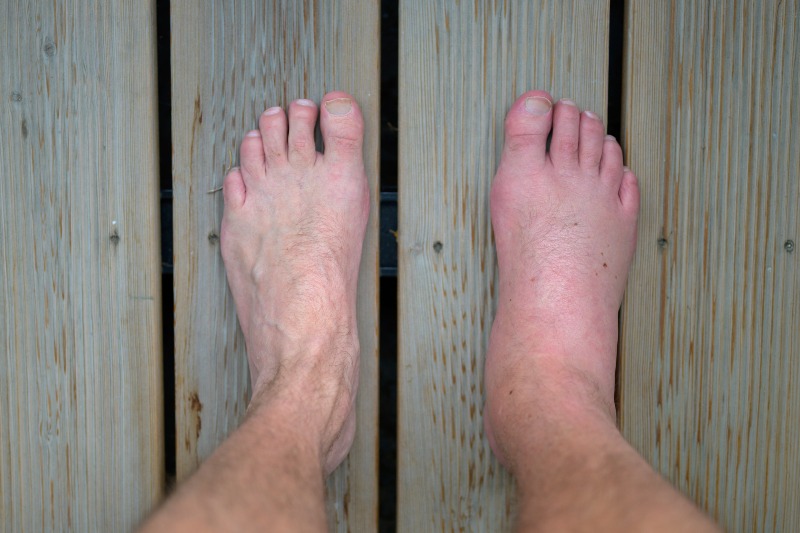
Your liver is located in the upper right area of your abdomen. Once it's impaired, the right side of your body might experience puffiness or inflammation, particularly in your right leg and ankle.
In this condition, your body is swollen due to excess fluid. If you press on a specific part, it usually leaves an indentation on the skin. This is also known as edema or pitting edema.
11. Ecchymosis
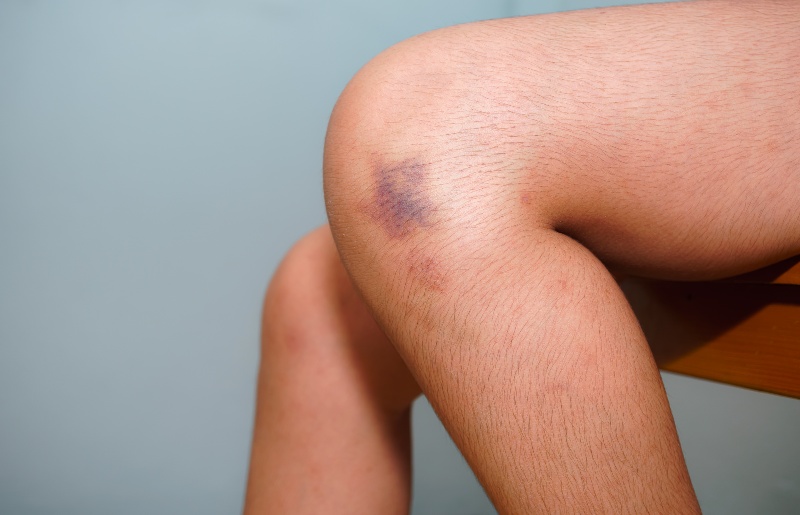
A damaged liver can't produce adequate proteins, causing bruises and bleeding. This results in small or red-purple dots appearing on your skin. This discoloration is known as ecchymosis and might be visible on your arms or lower legs.
12. Yellowed Skin and Eyes
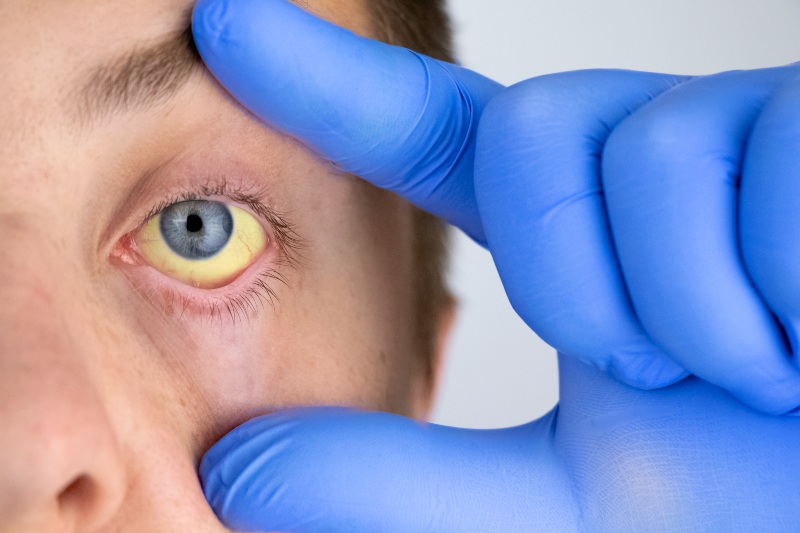
Probably a classic sign of any liver disease is the yellowing of eyes and skin.
If your liver isn't working right, it cannot break down and filter wastes and toxins properly. This leads to the accumulation of yellow-orange bile pigments called bilirubin in your blood.
Remedies and Nutrition Tips to Improve Your Liver
1. Try Prolonged or Intermittent Fasting

When you do fasting or consume calories in a short period of time, your body generates stem cells.
A study shows that these stem cells can minimize liver tissue damage. They may also lessen liver inflammation and eventually boost repair and regeneration.
2. Manage Your Weight

Obesity is one of the most common risk factors for liver disease. If you have too much fat in your body, consult your doctor so you can develop a weight loss program that's suitable for you.
You may also do physical activities regularly, such as resistance training and endurance exercise. These can help burn your overall body fat, including the fat buildup in your liver.
3. Eat a Balanced Diet

Vegetables contain phytochemicals that can lessen liver inflammation. They also assist your liver in healing itself naturally.
Eat plenty of cruciferous vegetables, such as:
- Broccoli
- Cauliflower
- Brussel sprouts
- Kale
- Cabbage
- Collard greens
Additionally, refrain from drinking alcohol and soda and eating refined carbohydrates, sugars, and unhealthy fats. These are some of the common causes of liver cirrhosis, as they damage liver cells and lead to scarring and inflammation.
Here's an infographic guide. Don't forget to download, save, or share this handy infographic for reference: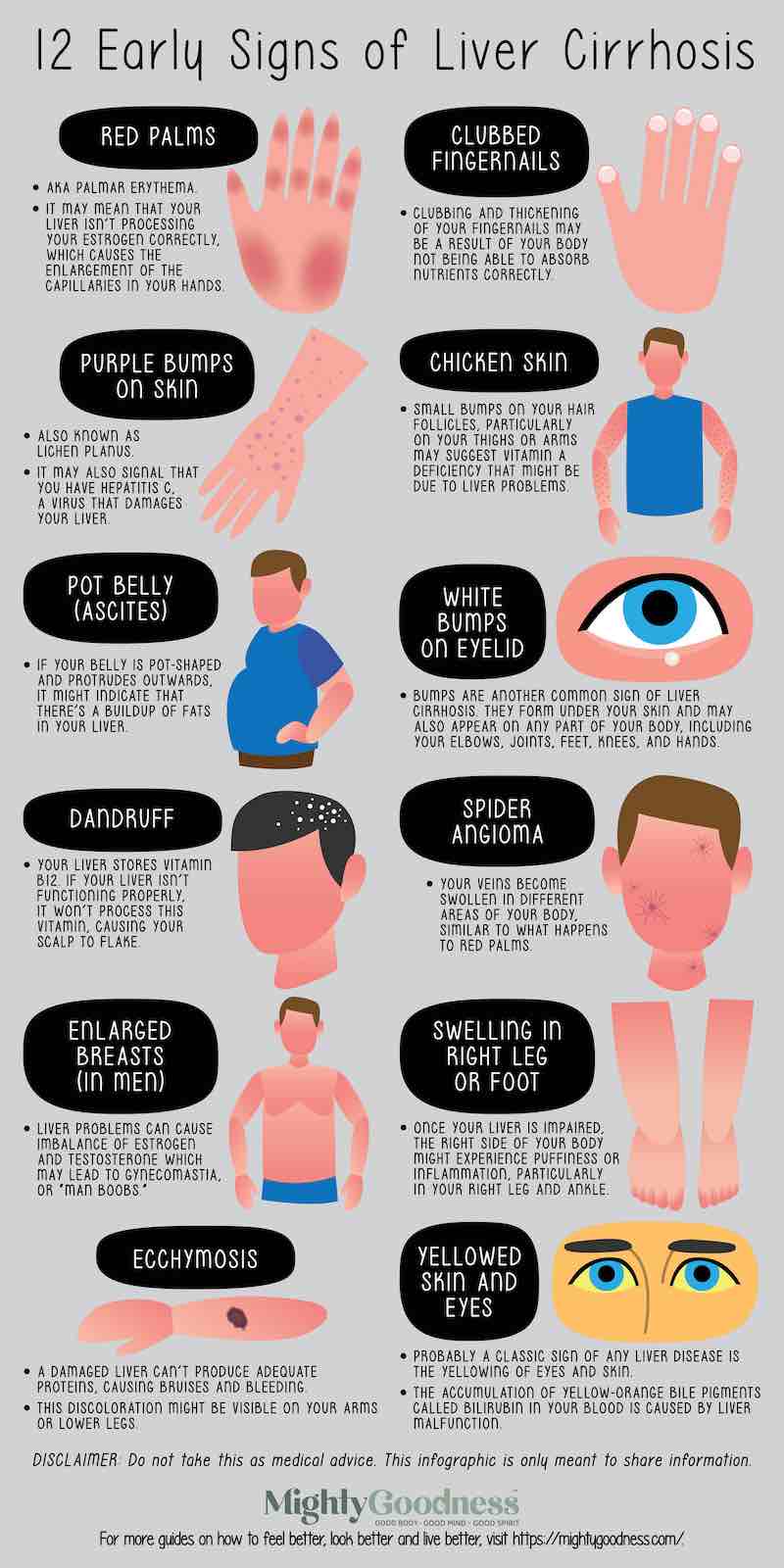
If you have liver cirrhosis, you must get enough protein from your diet and limit your salt intake. Watch this video by Ohio State Wexner Medical Center, as dietitian Liz Weinandy discusses how you should eat when you have liver cirrhosis:
Keep in mind that your liver is one of the largest and most crucial organs in your body, performing more than 500 vital functions.
If you're experiencing any of these liver cirrhosis symptoms, start taking steps to prevent further damage and improve your health.
What other symptoms of liver cirrhosis should you watch out for? Please share your thoughts with us in the comment section below!
Up Next:
- FATTY LIVER: 5 Things You MUST Avoid
- How To Reduce or Eliminate Bloating Effectively
- 15 Liver-Improving Foods for an All-Natural Detox
Please stay connected with us on Facebook, Twitter, Instagram, and Pinterest, and make sure to join our community of healthy living and minded people here.
Trending
Dating in Your 50s: Do’s and Don’ts
How To Develop A Healthy Habit In 21 Days
Get Updates
SIGN UP FOR OUR NEWSLETTER TODAY

13 Basic Flexibility Exercises For Older Adults

How To Develop A Healthy Habit In 21 Days
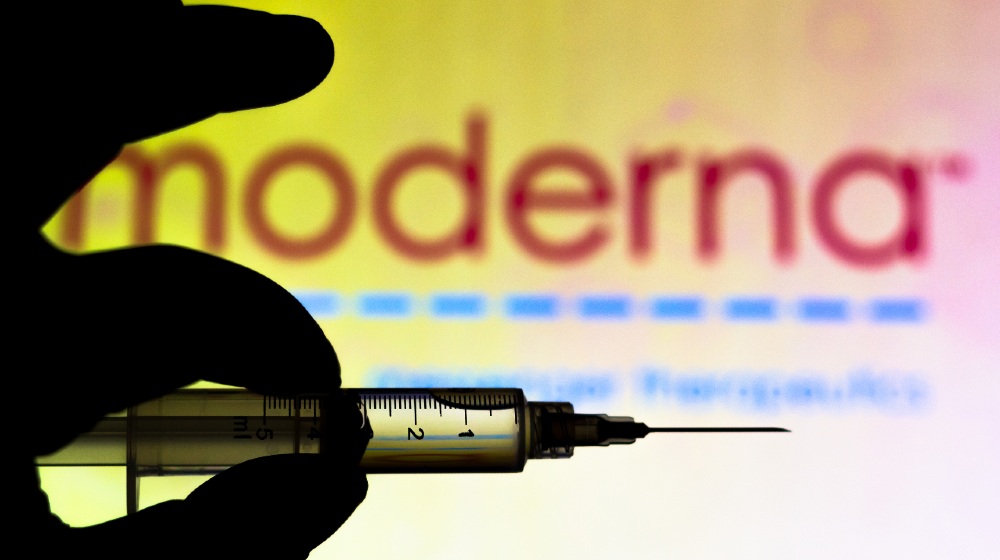
Coronavirus Vaccine News: Moderna Shows 94.5% Success
Related

13 Basic Flexibility Exercises For Older Adults

